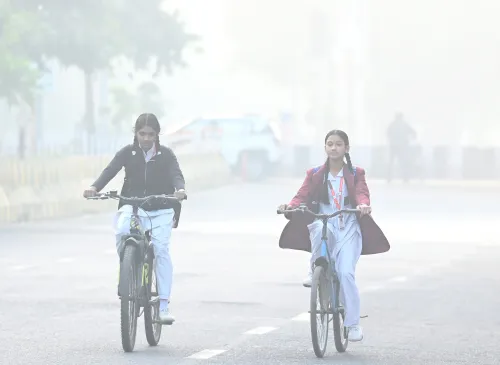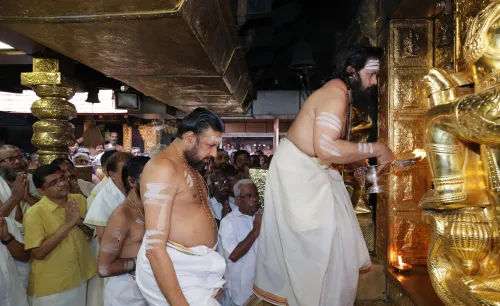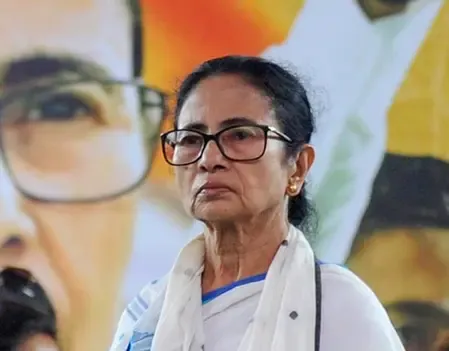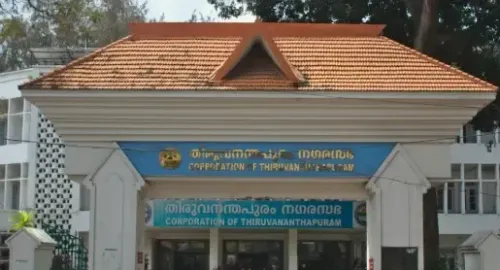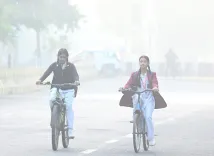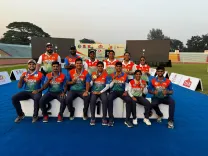Is the 88-Hour Op Sindoor Just a Prelude to a Full Movie?
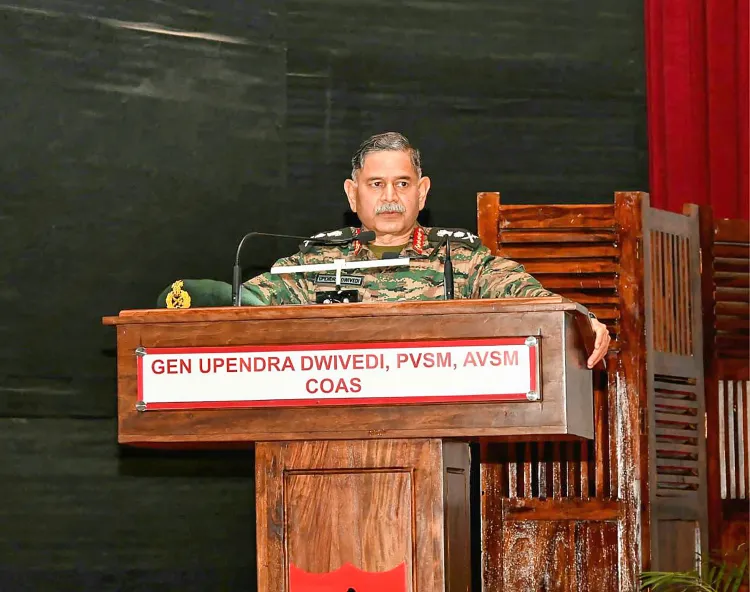
Synopsis
Key Takeaways
- Operation Sindoor described as an 88-hour trailer.
- Military readiness to respond to Pakistan emphasized.
- Deterrence is influenced by military capability and political decision-making.
- Significant decline in terrorism in Jammu and Kashmir noted.
- Upcoming Chanakya Defence Dialogue 2025 focuses on national security reforms.
New Delhi, Nov 17 (NationPress) - General Upendra Dwivedi, the Chief of Army Staff (COAS), referred to Operation Sindoor as a mere 88-hour preview that concluded prior to the main event. He cautioned that the military stands fully prepared to deliver a response to Pakistan should the situation necessitate it.
During the opening of the Chanakya Defence Dialogue 2025, the Army Chief stated that the armed forces are ready to tackle any challenges that may arise in the future.
Regarding Operation Sindoor, he remarked, “I’d like to emphasize that the actual movie never started; only a trailer was presented, and that trailer spanned 88 hours. Looking ahead, we are completely equipped.”
He further added, “If anyone in Pakistan offers us such a chance again, we will certainly show them how a responsible country interacts with its neighbors.”
Discussing the concept of deterrence and political strategies, General Dwivedi asserted, “Deterrence is shaped by military strength and the capacity to make political choices. It is effective only if the opponent believes you will act in accordance with your warnings. The adversary must take your resolve seriously.”
He also highlighted that effective deterrence relies on a nation’s military capability to strike as hard as it warns. “Today, our military strength is constantly on the rise,” he stated.
“I can confidently declare that deterrence is functioning,” he added.
Addressing the repercussions of instability in neighboring countries, General Dwivedi noted, “It’s expected that any situation occurring across the border will impact us too. We have a responsibility to assist if help is required.”
He cited the example of Myanmar, where internal conflicts led to a refugee influx into India, numbering between 43,000 to 44,000 individuals. “We prefer for them to return home voluntarily, and until they do, we are providing for their needs,” he explained.
The Army chief indicated that terrorism in Jammu and Kashmir has reached its lowest levels. “In terms of terrorism, there has been a marked decrease. This year, we have neutralized approximately 31 terrorists, with 61% being of Pakistani origin. There have been no incidents of stone-pelting or sloganeering; everything has ceased,” he said.
The Indian Army, in partnership with the Centre for Land Warfare Studies (CLAWS), hosted the inaugural session for the Chanakya Defence Dialogue 2025 (CDD-2025) at the Manekshaw Centre in New Delhi. Scheduled for November 27-28, the dialogue will revolve around the theme 'Reform to Transform: Sashakt, Surakshit aur Viksit Bharat', as announced by the Ministry of Defence.
The event commenced with introductory remarks followed by the unveiling of the CDD-2025 teaser. A Fireside Chat featuring the Chief of the Army Staff was a significant highlight of the program.
During the discussion, the COAS emphasized the connection between national development and security, asserting that the ambitions of 'Viksit Bharat @2047' demand persistent stability and a secure landscape.
Rajiv Chandrasekhar, former Minister of State for Electronics and Information Technology, underscored the strategic relationship between technological advancement and national security in his special address.
A panel discussion, led by Lieutenant General Rahul R. Singh, Deputy Chief of the Army Staff (Capability Development and Sustenance), convened experts from DRDO, the defense sector, and academia.
The conversations centered on 'Atmanirbharta' as a pathway to strategic independence, highlighting indigenous design, development, and innovation, as well as enhancing dual-use technologies. They discussed the integration of ecosystems among DRDO, the private sector, and academia, reforms in procurement processes, and the role of MSMEs and Defence Industrial Corridors in establishing competitive, export-ready clusters.
Discussions also underscored the necessity for resilient supply chains, reduced external dependencies, and the accelerated growth of India’s deep-tech ecosystem to meet future operational needs.

